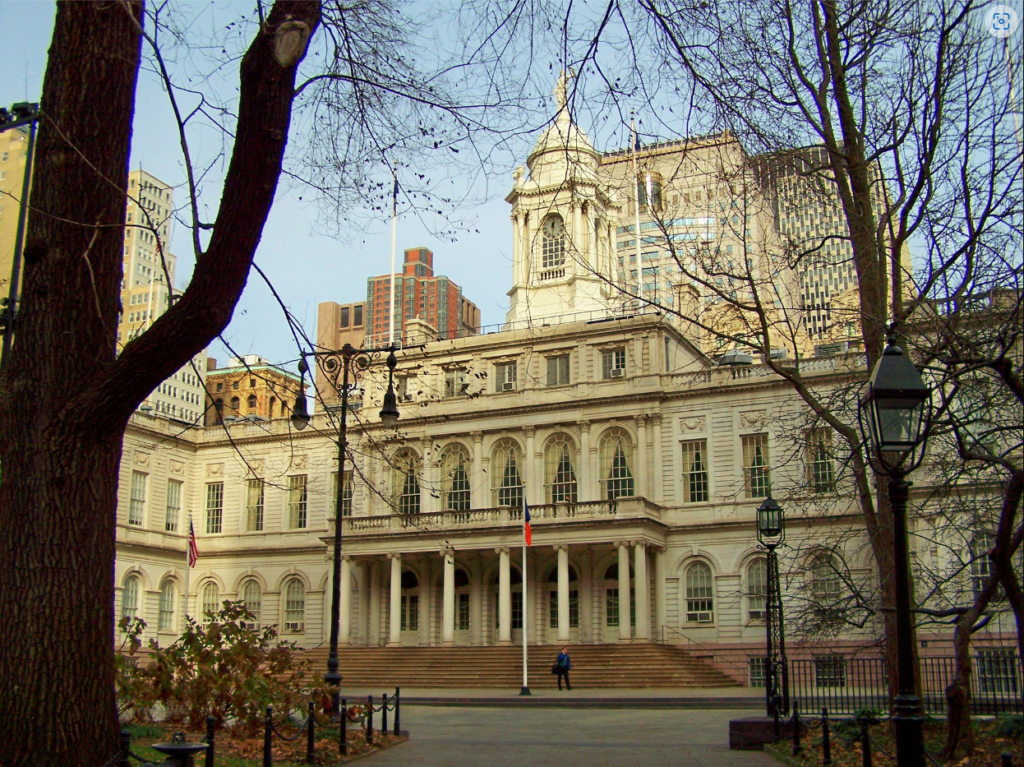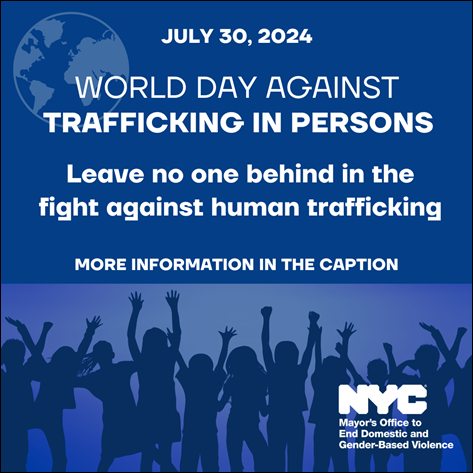
Photo courtesy of Tom Link via Flickr
“World Day Against Trafficking in Persons” was marked on Tuesday, July 30, by the Mayor’s Office to End Domestic and Gender-Based Violence (MOEDGBV) by highlighting this year’s global campaign which focuses on vulnerable groups.
According to MOEDGBV, human trafficking is the use of power and control to force, trick, or coerce someone into engaging in providing labor or services, which can include commercial sex. MOEDGBV officials say traffickers exploit social and economic inequity for their own benefit, using tactics like violence, emotional manipulation, and psychological threats. Trafficking is a criminal act. “Anyone can be trafficked, including U.S. citizens, foreign nationals, and adults and children of any age, gender identity, or sexual orientation,” officials said.
According to MOEDGBV, this year’s global campaign focuses on ending child trafficking and protecting vulnerable groups. Vulnerable groups often include immigrants and migrants, particularly those without permanent immigration status. They are often Black, Indigenous, or other people of color; LGBTQI+ people; young people, especially those impacted by poverty; people living in poverty; people who have experienced violence, including war, displacement, child abuse, sexual assault or abuse, domestic violence and other forms of gender-based violence; people who do not speak English; and people in shelter or without permanent housing.
According to the UNODC’s 2022 Global Report on Trafficking in Persons, globally, 1 in 3 victims of human trafficking globally is a child, and children are subjected to various forms of trafficking, including forced labor, crime, begging, illegal adoption, sexual abuse and the online dissemination of abusive images. Some are also recruited into armed groups.

Image courtesy of the Mayor’s Office to End Domestic and Gender-Based Violence
According to the same report, LGBTQI+ youth make up 20 to 40 percent of victims, and youth of African descent, mostly girls, represent 50% or more of all juvenile sex trafficking victims. The report also found that the percentage of boys identified as victims of human trafficking more than quintuple between 2004 and 2020, a much larger increase than for men, women, or girls.
According to MOEDGBV, human trafficking deeply impacts victims, families, and communities as there are many barriers preventing trafficking victims from reaching out for help, including fear of engaging with the criminal justice system, stigma, and shame.
For survivors of domestic and gender-based violence, including human trafficking, help and resources are available. The New York City Family Justice Centers (FJC) encourage those impacted by human trafficking to contact them for help. Call 311 to connect or visit the FJC in the borough where you live, or one where you feel safest. All Centers are open for in-person or remote services, Monday to Friday, 9 a.m. to 5 p.m.
Coinciding with Human Trafficking Awareness Month in January, Northwest Bronx Assemblyman Jeffrey Dinowitz (A.D. 81), a Democrat, was among a coalition of elected officials, advocates, and human trafficking survivors who joined Manhattan District Attorney Alvin Bragg, Jr., on Jan. 18, to call on the New York State legislature to support survivors by eliminating the five-year statute of limitations for sex trafficking and child sex trafficking.
The assemblyman provided an overview of the history on legislation around human trafficking, saying, “We’re in the year 2024. It was some time, I think, in late 2004, almost 20 years ago, that I first started working on legislation regarding human trafficking because up until then, there was no mention of human trafficking in New York Law. There was no crime of human trafficking, and you would have [thought] it would have been a no brainer that we could have passed something really quickly to combat human trafficking, both sex trafficking and labor trafficking, and yet, it took a few years, before we finally put together a strong-enough coalition to deal with that.”
Gesturing to those gathered around him, the assemblyman continued, saying, “I just want to say, right now, having DA Bragg and Sen. Cleare… telling your story and all these advocates and survivors here is why I’m confident that we can get the job done twenty years after we started working on this issue. I’m not a patient person but this is way too long. In 2007, we passed the first anti-human trafficking law. It was called the Anti-Human Trafficking Act of 2007 and it defined what human trafficking was in law.”
Call NYC’s 24-hour Crime Victims Hotline (1-866-689-HELP or 4357), or the National Human Trafficking Hotline (1-888-373-7888 / TTY 711 or text 233733) for confidential services and supports to get help and stay safe. Visit the NYC HOPE Resource Directory for resources at https://on.nyc.gov/2Ts01xg.
To read some of our previous coverage of this issue, click here, here, here and here.




